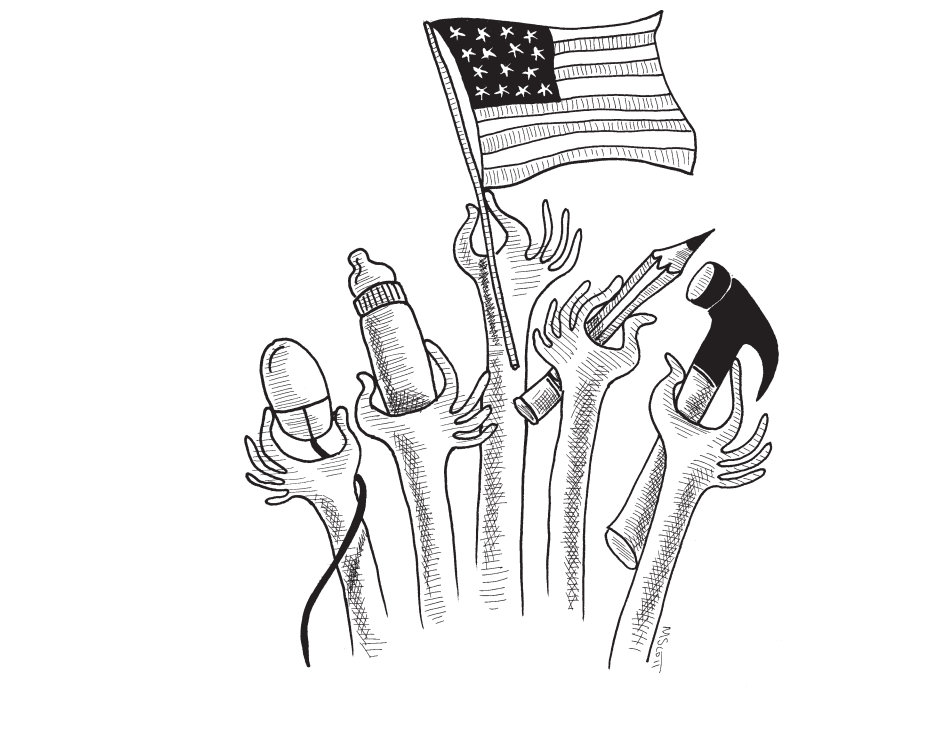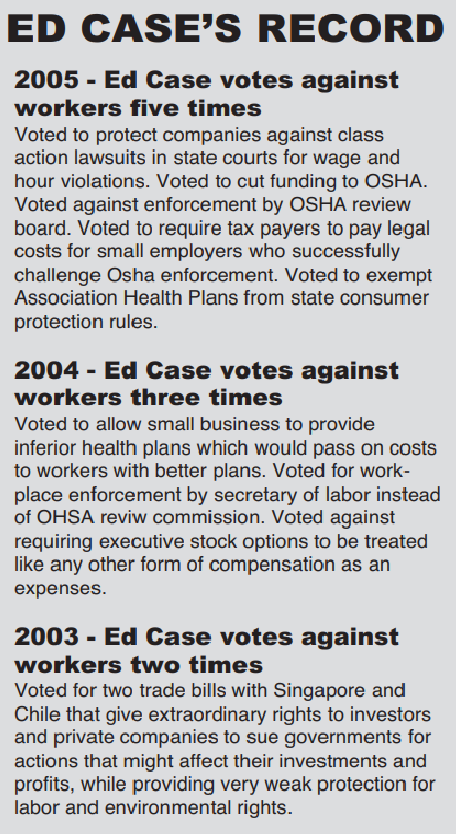Nothing today can be achieved at the bargaining table that can’t be taken away by legislatures, by congress, or by parliament. No union I think in America has gone through an experience like yours that has seen that as clearly. You win at the bargaining table, you lose in the political corridors if you don’t also have a political strategy, whether it’s deregulation of transportation, energy, communications, construction that we have seen over the last couple of decades, whether it’s privatization of public goods, which we are seeing all the time on both sides of the border, whether it’s free trade and its effect on manufacturing and outsourcing, or really even just direct political attacks on labor, such as paycheck protection, allegedly in California—really paycheck deception—homeland security, legislating the removal of bargaining rights and representation rights, or here in Canada the federal New Democratic Party putting forward a proposal to eliminate the use of scabs in labor disputes. We can see that politics has a profound effect on our organizations.

We are in an environment where on both sides of the border we have very right-wing governments who are trying to reduce what is possible. They want to reduce your hopes, your aspirations. They have a vision of the future of fear — a future of fear, where people become more and more isolated, where people become scared, where people are afraid to dream again. That is the future that both the Stephen Harper federal government and the George Bush federal government in the U.S. have for working people in Canada and the U.S.
I would argue, we have a very different future in mind. The future we want to create is a democratic, equitable, collective organizing future that speaks for the real aspirations, not only of the people of both of our countries, but really of an international labor movement, a very different type of future. It’s a future that I think is possible. But to do that, we need an organizing strategy, we need a strategy not just organizing unions in the workplace, but, in fact, an organizing strategy that deals with political power. And political power is where many of the decisions about the type of world we will be are made.
—excerpted from speech to ILWU Convention
Vancouver, Canada, May 2006

Workers have the power of the vote
Good schools and education for our children. Guaranteed health care and prescription medication for the elderly. More time off to spend with our families. Affordable housing and better transportation. Safer jobs and protection of workers’ rights. A cleaner environment.
Working people have the power to make this happen.
Your vote can make the difference in whether we have a government that tries to help workers or whether we have a government that does everything for business and nothing for working families.
The ILWU is active in politics because we want a government that will use its power and resources to help working people. Working people can help make this a reality if we register to vote and use the power of our vote wisely.
You can help by urging your fellow workers to support the ILWU political action program. You can make sure they are registered to vote, if they are eligible. You should encourage them to apply for an absentee ballot, where you can vote by mail. This is the easiest and most convenient way to vote.
Volunteer to help
Volunteers are needed! Just a few hours of your time can make a big difference. Tell your ILWU business agent or unit officers that you are willing to help.
Or call the ILWU Political Action Coordinator on your island:
Hawaii - Brev Blas at 935-3727
Maui - Abel Kahoohanohano at 244-9191
Kauai - Ipo Kamoku-DeMello at 245-3374
Oahu - Sharon Basmayor at 949-4161
Remember these dates!
Primary Election 2006
Absentee ballot applications will be accepted from July 25, 2006 to September 16, 2006 for the Primary Election.
Register to vote for the Primary Election before August 24, 2006, 4:30pm.
You may vote in-person from September 11-21, 2006 for the Primary Election. Locations determined by your County Clerks office. Times may vary slightly at each location.
Vote on Saturday, September 23, 2006 7:00 a.m. to 6:00 p.m.
General Election 2006
Absentee ballot applications will be accepted from July 25, 2006 to October 31, 2006 for the General Election.
Register to vote for the General Election before October 9, 2006, 4:30pm.
You may vote in-person from October 24, 2006 to November 4, 2006 for the General Election. Locations determined by your County Clerks office. Times may vary slightly at each location.
Vote on Tuesday, November 7, 2006 7:00 a.m. to 6:00 p.m. ◆
